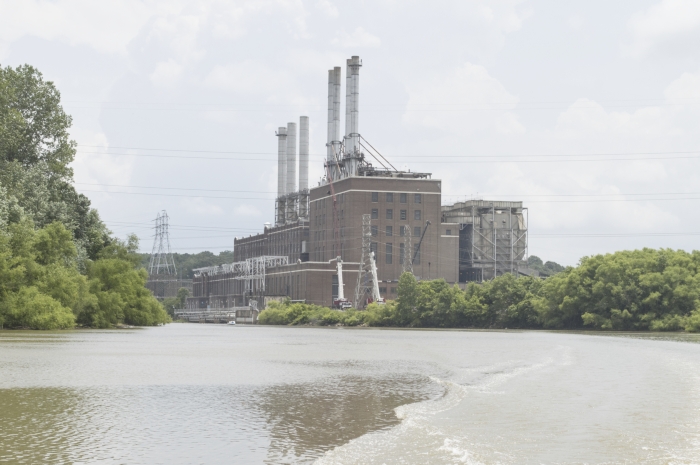Duke asks for dismissal, delay of riverkeeper suit
Published 12:38 am Thursday, August 6, 2015

- Duke Energy's Buck Station in Rowan County. Josh Bergeron / Salisbury Post -
WINSTON-SALEM — Attorneys for Duke Energy on Wednesday asked a federal judge to delay or dismiss a Yadkin Riverkeeper suit that alleges the company is violating the Clean Water Act at Buck Steam Station.
North Carolina Middle District Court Judge Loretta Biggs — assigned to the federal Buck case — didn’t make a ruling during Wednesday’s hearing.
Instead, Biggs sought clarification on conflicting arguments between Duke Energy and the Yadkin Riverkeeper. Topics discussed during the hearing ranged from inadequate environmental enforcement by state government to arguments relating to the definition of “Waters of the U.S.”
The largest portion of the hearing, however, focused on requests to delay or dismiss the case.
Duke’s attorneys based large parts of their arguments for delay or dismissal on similarities between the federal case and a state case involving the riverkeeper. Richard Morton, an attorney for Duke, said the federal case was nearly identical to the state suit. Morton said the federal case also may not be relevant by the end of 2015, when Duke is required to announce priority levels for each of its coal ash facilities.
A groundwater study at Buck Steam Station — currently in progress — is expected to help decide the priority level. Buck’s groundwater study has an Aug. 21 deadline. If Buck is designated as a high-priority site, Duke attorneys said the company would be required to adopt the same solution being requested in the Riverkeeper’s federal case.
“There’s no prejudice by letting this play out until the end of the year,” said Jim Cooney, an attorney for Duke.
Southern Environmental Law Center attorney Frank Holleman, representing the riverkeeper, said the federal case concerns non-engineered seeps into the Yadkin River, while the state case concerns engineered seeps.
Holleman likened any delay or dismissal of the federal case to the 2014 Dan River coal ash spill. He said courts failed to take action and Duke Energy ignored warnings before the spill.
“What we’re asking you to do today is not to repeat the same mistake again,” Holleman said.
He said the Southern Environmental Law Center for months pushed for state action in courts before the Dan River spill.
Issuing a stay — delaying the case – or dismissing it entirely could leave coal ash regulation decisions up to a state court decision or state government, which Holleman criticized as unlikely to sanction Duke. He said “waiting and hoping” state government and the legislature would make the right decision is “no way to protect the public interest.”
The riverkeeper’s lawsuit is classified as a “citizen suit” under the Clean Water Act. The suit, in part, alleges Buck Steam Station’s coal ash ponds are leaking contaminated groundwater into “Waters of the U.S.,” which includes the Yadkin River.
Duke attorneys argued that groundwater, if contaminated by coal ash residues, couldn’t be classified under the Environmental Protection Agency’s “Waters of the U.S.” definition. Holleman countered by saying groundwater serves as a direct hydrologic connection between ash basins and the Yadkin River, which falls under the definition of “Waters of the U.S.” Holleman argued the hydrologic connection violates the Clean Water Act.
In the lawsuit, the Yadkin Riverkeeper is asking for a declaratory judgment that Duke is violating the Clean Water Act, a civil penalty of up to $37,500 per day for each violation, removal of all coal ash from Buck Steam Station’s ponds, removal of any pollutants that have seeped into the Yadkin River and measures to prevent the flow of contaminated groundwater into the river.
This story has been updated to correctly reflect statements said by Holleman during the court hearing.




